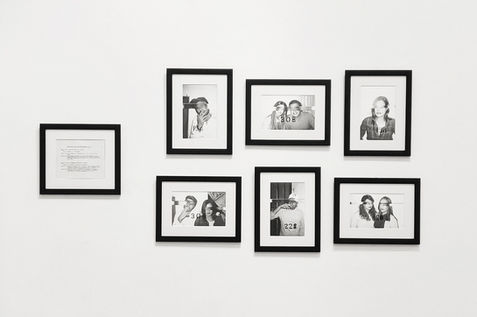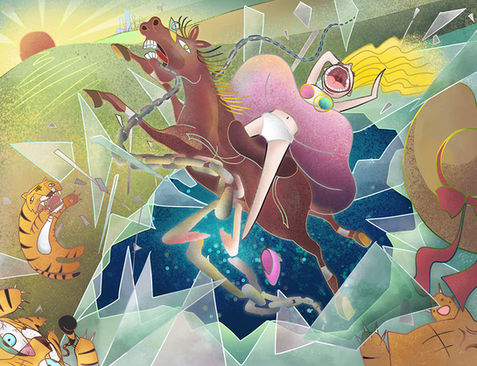NOW THAT WE ARE FREE

FOR THE INAUGURAL AIS OPEN, WE ARE EXPLORING THEMES ASSOCIATED WITH FREEDOM.
The exhibition titled, ‘Now That We Are free’ has been curated by Ashokkumar Mistry for an online space.
We received 120 submissions from 28 countries and we are pleased to say that the selected artists provide a truly global array of interpretations of our theme. We would like to thank everyone that has taken part. We can see that there is a real thirst for creative expression and so, we made the decision to increase the amount of artists whose work we exhibited.
AIS festival has always been guided by interlinking the connected histories of Britain and South Asia with contemporary concerns.

THE AIS OPEN WAS ORIGINALLY INSPIRED BY CURATOR ASHOKKUMAR'S CONTEMPLATION OVER THE GAP BETWEEN INDEPENDENCE DAY AND REPUBLIC DAY FOR SOUTH ASIAN COUNTRIES.
India and Pakistan were free in 1947 but needed to work for a further three and six years respectively before they could finally define themselves free in their own words and on their own terms.
For many people in South Asia, Republic day (marked on 26th January in India and 23rd March in Pakistan) represents the first steps towards self determination through the ratification of a constitution after years of work.
RATHER THAN FOCUS ON THE ACT OF ATTAINING FREEDOM, ASHOKKUMAR'S INTENTION HAS BEEN TO EXPLORE BROADER QUESTIONS AROUND FREEDOM ONCE IT IS ATTAINED.
This inquiry attempts to scrutinise how thoughts, actions and priorities change once we are faced with the reality of freedom. How does one express a freedom that is craved for so long? All of the artists selected for this exhibition have interpreted the theme in their own way to offer a rich variety of perspectives for the viewer to ponder.
The Coivd-19 crisis has forced us into a form of house arrest that has had far-reaching consequences on our personal, social and cultural freedoms. As we slowly wake from a mighty and involuntary slumber, does our freedom mean something different? We hope this exhibition will help guide our first furtive steps back towards a freedom we once enjoyed.
2020 WINNER
RUPI DHILLON -
'THE ANTHROPOLOGY OF THE SELF'
RUNNERS UP
'MOUNTAIN - TEYMOUR GHADERI
'I'M FEELING IN AND OUT' - S M REYAD
'VICTORIA TERMINUS' - KINNARI SARAIYA
ARTISTS
The artworks in the exhibition have been organised across seven thematic areas - reflecting both different aspects of freedom and the artists' interpretations of it.
Click the desired category title to be taken to the section. You can also use the orange anchor menu at the side to navigate between categories.
Clicking each image or video within a category will open an expanded page with details about the piece.
NIRMALENDU SAHA
SAEID AKBARNEZHAD
ISMAIL KHOKON
TEYMOUR GHADERI
SEVERINA DANIELOVA
ESMAEIL GHAEDI
S M REYAD
RUPI DHILLON
AMIR DEHGHAN
AMBER CANNINGS
KINNARI SARAIYA
MUSTAFA BOGA
PRASOON PODDAR
SABITA LAKSHMANAN
CLARE BRUMBY
SANDEEP SUNERIYA GUJURAT
IZAAK BRANDT
HONEY WILLIAMS
辛慧敏 HUIMIN XIN
KRISHNA BALAKRISHNAN
JUDGES
SITUATION LIVED
An important part of freedom in many situations throughout history has been for people to understand and embrace the situations they have lived through to enable them to make sense of the change that they face. Both of these artists offer a moment to understand the hardship endured.

REFLECTION AND REFRACTION
The moment of reflection after freedom feels like a magical twilight in which once held beliefs are refracted when held up to the lens of reality. Reflection offers a chance to reorder the fragments of a situation as upheaval rages. All three artworks offer moments of deep contemplation and calm.

REMINISCENCE
Memories allow us to make sense of the present or the future. All of the works in this section demonstrate different types of memories and their potency. Memories of moments, faces, places and an absence focus our attention on the details that seem insignificant but sit as an indelible mark in one's mind.

THE BODY POLITIC
The images in this series consider the significance and insignificance of the vast populations present during change. How we see each other as inequalities play out, defines a society. Some depict animals as metaphors for our biases for sections of society that differ from our own.

PROVOCATION AGAINST DOGMA
The mechanism for affecting change is the subject of our next three artists. In many ways these artists hold up a mirror to the societies in which they live and provoke the people around them, imagining a different way of seeing. By challenging traditions and laws in a subtle way these artists enable a dialogue to develop.

CHALLENGING NARRATIVES
These artworks all represent the upheaval of revolution that very directly challenges the legitimacy of authority - a prerequisite for true freedom. Breaking through a facade of freedom, all three of these works exist as a primal scream for change.

COLLECTIVISM
Working together to fulfil the ambitions of freedom are fundamental to any situation. Collectivism means more than just working together, however, as can be seen in all three artworks. It refers to a series of interdependencies and understandings that enable a flow of ideas that evolve and build into more than the sum of its parts. A rhythm is created through working collectively that transcends the individual, providing a chance to build a freedom that is bigger than us all.

THANK YOU
We hope you have enjoyed viewing ‘Now That We Are Free’ ! The exhibition will remain viewable until 23 August. The artworks within the exhibition will have taken you through a few of the multitude of issues that make freedom, once it has been attained, such a difficult subject to navigate. Learn more about the artists involved in the project and continue the discussion on our social media channels.
Click here to return to the top of the page.
AN INDIAN SUMMER 2020 runs 10 -23 August, see the full programme here



Exhibition website made by Anoushka Goodwin
























